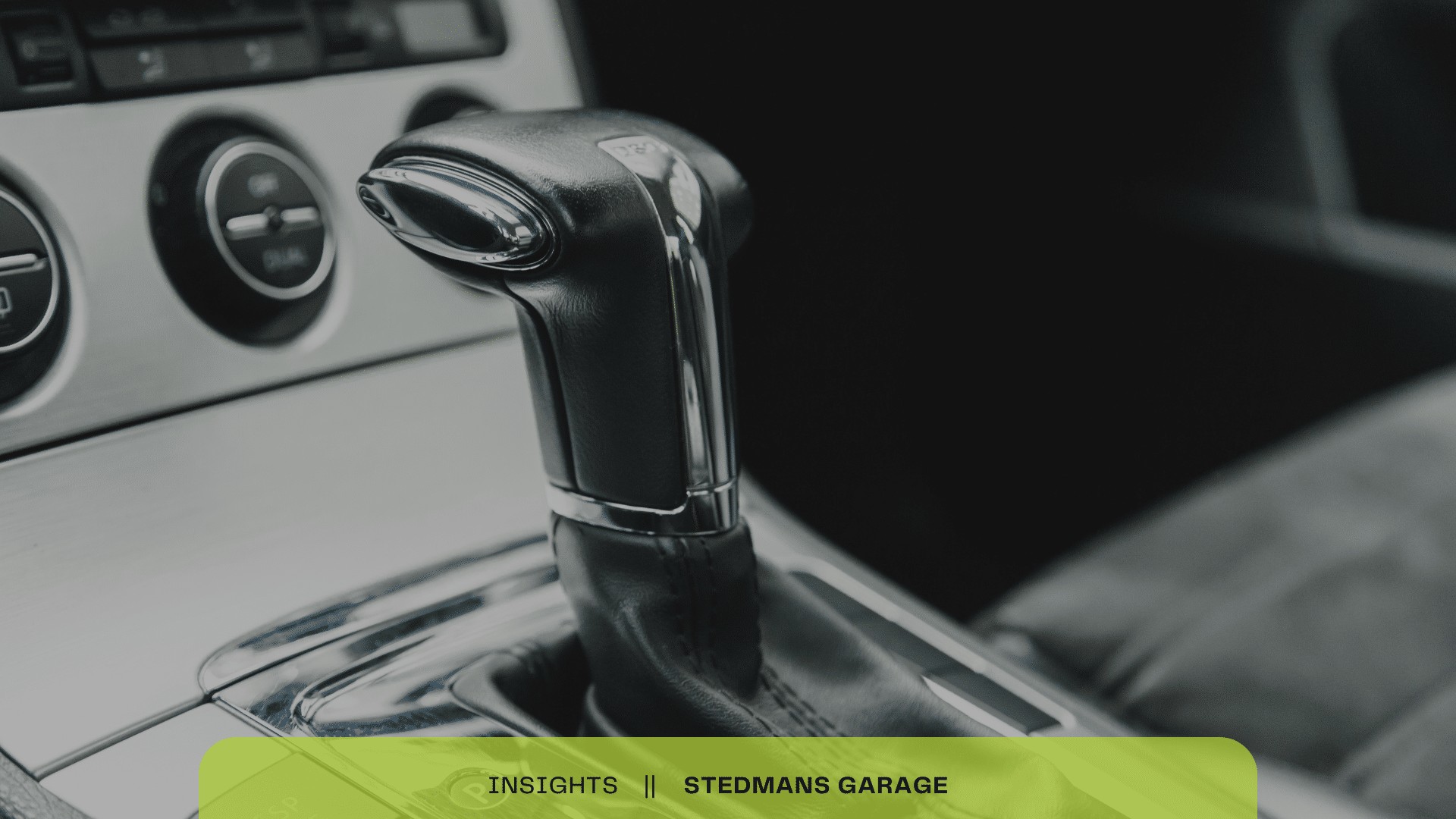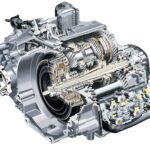The Volkswagen Direct Shift Gearbox (DSG) is praised for its rapid gear changes and blend of automatic convenience with manual performance. Found across the Volkswagen, Audi, SEAT, and Skoda ranges, DSGs offer efficiency and a sporty feel. However, like any complex automotive component, VW DSG gearboxes are susceptible to faults. Understanding common Vw Dsg Gearbox Faults is crucial for early detection and preventative maintenance, potentially saving you from extensive and costly repairs down the line. Recognizing the signs of trouble early can make all the difference.
What is a DSG Gearbox?
A DSG gearbox, or Direct Shift Gearbox, is an innovative type of automatic transmission known as a dual-clutch transmission. Unlike traditional automatics that use a torque converter, a DSG uses two separate clutches – one for even gears and one for odd gears. This ingenious design allows the gearbox to pre-select the next gear while the current gear is still engaged. The result is incredibly fast, seamless gear changes, often quicker than a manual transmission operated by a skilled driver. DSG transmissions offer the ease of fully automatic mode but also typically include paddle shifters for those who desire manual control over gear selection.
Common VW DSG Gearbox Faults
VW DSG gearboxes, while advanced, can experience a range of problems. Many issues stem from the complex electro-hydraulic control system that manages the dual clutches and gear shifts. Here are some of the most frequently encountered VW DSG gearbox faults:
Solenoid Valve Failures
DSG gearboxes rely on a network of solenoid valves to precisely control the flow of hydraulic fluid, which in turn engages clutches and selects gears. These solenoids act as rapid electronic switches, directed by the Transmission Control Module (TCM) based on sensor inputs. Over time, these solenoid valves can be prone to failure. Causes include normal wear and tear, contamination within the transmission fluid, electrical malfunctions, or even issues originating from the TCM itself. When solenoid valves fail, they can become stuck in an open or closed position, disrupting the smooth and precise gear changes that DSGs are known for. Solenoid valve failures are recognized as one of the more common VW DSG gearbox faults.
Signs and Symptoms of Solenoid Valve Failures:
If you suspect solenoid valve issues within your VW DSG gearbox, be alert for these symptoms:
- Rough or Jerky Gear Shifts: Gear changes may feel harsh, uneven, or abrupt instead of smooth.
- Transmission Slipping: You might experience a sensation of the transmission momentarily losing engagement or “slipping” between gears.
- Delayed Gear Engagement: Gears may take longer than usual to engage, or in some cases, not engage at all.
- Getting Stuck in Gear: The gearbox might become stuck in a particular gear and refuse to shift up or down.
- Trouble Accelerating: Hesitation or sluggishness during acceleration can indicate a gear selection problem.
- Transmission Warning Lights: The dashboard may illuminate a warning light specifically for the transmission system.
- Error Codes: Diagnostic scans may reveal error codes related to solenoid valve performance.
It’s important to address suspected solenoid issues promptly. What starts as subtle symptoms can rapidly escalate into more pronounced problems and potentially lead to further damage within the DSG gearbox.
High-Pressure Valve Leaks
VW DSG gearboxes operate under significant hydraulic pressure, reaching up to 1500 PSI in certain applications. This pressure is generated by an electric high-pressure pump and meticulously regulated by a series of control valves. These high-pressure valves are critical for maintaining the hydraulic force needed for clutch engagement and gear selection. However, with time and mileage, these valves can develop leaks. Normal wear, fluid contamination, and thermal stress can all contribute to high-pressure valve leaks within the system. Leaks lead to a reduction in line pressure throughout the DSG, directly impacting its ability to execute smooth and efficient gear changes. High-pressure leaks are another recognized VW DSG gearbox fault.
Signs and Symptoms of High-Pressure Valve Leaks:
Be vigilant for these signs that may indicate high-pressure valve leaks in your VW DSG gearbox:
- Sluggish Gear Shifts: Gear changes may become noticeably slower and less responsive.
- Transmission Slipping or Hesitation: Similar to solenoid issues, slipping or hesitation during gear engagement can occur.
- Lack of Power and Trouble Accelerating: Reduced hydraulic pressure can impact clutch performance, leading to diminished power delivery and difficulty accelerating.
- Unexpected Gear Disengagement: Gears may disengage unexpectedly while driving, potentially causing a loss of drive.
- Transmission Warning Lights: Warning lights on the dashboard often accompany pressure-related issues.
- Pressure Control Error Codes: Diagnostic scans will likely reveal error codes pointing to problems with pressure regulation within the transmission.
Like solenoid faults, high-pressure leaks can start subtly but quickly worsen. Early detection is key to preventing further damage to internal clutches and other components of the DSG gearbox.
Electric Motor Failure
The electric high-pressure pump within a DSG gearbox is driven by a dedicated electric motor. This design allows the pump to operate independently of engine speed, ensuring consistent hydraulic pressure is available at all times, regardless of engine RPM. This electric motor, however, is not immune to failure. Over time, issues such as worn bearings, electrical contact problems in the wiring, or even malfunctions within the Transmission Control Module (TCM) can lead to electric motor failure. A failed electric pump motor results in a complete loss of hydraulic pressure, rendering the DSG gearbox unable to shift gears.
Signs and Symptoms of Electric Motor Failure:
The following are typical signs indicating a potential electric pump motor failure in your VW DSG gearbox:
- No Drive in Forward or Reverse: The most dramatic symptom – the vehicle will not move in either drive or reverse.
- Transmission Will Not Shift: The gearbox will be completely unresponsive to gear selection commands.
- Flashing Gear Selector Indicator: The gear selector display in the instrument cluster may flash or blink in positions like PRNDS, indicating a fault.
- Loud Whining Noise from Transmission: A failing electric motor or pump may produce an unusual and noticeable whining sound.
- Check Engine Light and Transmission Fault Codes: Both the check engine light and transmission-specific fault codes will likely be triggered.
Electric motor failure typically results in an immediate and obvious loss of drive. While the vehicle might roll a short distance if already in motion, acceleration will be impossible. Repair usually involves replacing the electric motor itself or the entire pump assembly.
High-Pressure Pump Failure
As mentioned, the electric high-pressure pump is crucial for DSG operation. While the electric motor powering the pump can fail, the pump itself is also a potential source of problems. Internal pump components, such as worn pump vanes, contamination within the fluid passing through the pump, or broken internal parts, can all lead to pump failure. Like electric motor failure, high-pressure pump failure results in a complete loss of hydraulic pressure. Without adequate pressure, the DSG clutches cannot engage, and the gearbox becomes inoperable.
Signs and Symptoms of High-Pressure Pump Failure:
The symptoms of a failing VW DSG high-pressure pump closely resemble those of a failed electric motor:
- No Drive in Any Gear: The vehicle will not move, regardless of gear selection.
- Transmission Will Not Shift: Gear changes are impossible.
- Flashing Gear Selector: The gear selector display may flash erratically.
- Unusual Noises from Transmission: Loud noises, possibly whining or grinding, may emanate from the gearbox.
- Warning Lights and Error Codes: Expect transmission warning lights and stored fault codes.
Distinguishing between a pump failure and an electric motor failure often requires professional diagnostic equipment. In either scenario, repair typically involves replacing the pump assembly to restore proper DSG function. Addressing the issue promptly can help prevent secondary damage to other internal DSG components.
Other Module or Sensor Failures
Beyond the mechanical and hydraulic components, VW DSG gearboxes rely heavily on a sophisticated network of electrical components for seamless operation. The Transmission Control Module (TCM), speed sensors, position sensors, pressure sensors, and solenoid valves must all work in perfect coordination for smooth gear changes. Issues affecting the TCM computer itself, wiring faults, failed sensors, or even software glitches can all manifest as apparent transmission problems. These electronic faults can sometimes mimic mechanical issues, leading to similar symptoms and diagnostic challenges.
Signs and Symptoms of Other Module or Sensor Failures:
Keep an eye out for these signs that might indicate TCM, sensor, or other electrical issues within your VW DSG gearbox:
- Intermittent Problems: Problems that appear and disappear sporadically, rather than being consistently present.
- Shifting Problems Without Mechanical Cause: Diagnostic inspections may not reveal any obvious mechanical faults within the transmission, yet shifting issues persist.
- Error Codes Related to Specific Sensors or Modules: Diagnostic scans may pinpoint error codes related to specific sensors (speed, position, pressure) or the TCM itself.
- Problems After Software Updates: Issues that arise or change in behavior following software updates to the vehicle’s control systems.
- Other Electrical Issues: Coincidental electrical problems elsewhere in the vehicle, such as warning lights for other systems or radio malfunctions, could suggest broader electrical system issues affecting the DSG.
Diagnosing electrical faults often necessitates advanced diagnostic tools and expertise. The transmission may require adaptation or resetting by a qualified technician. Software updates, TCM replacement, or wiring repairs may be necessary to resolve these types of VW DSG gearbox faults.
 VW DSG Gearbox Fault Diagnosis
VW DSG Gearbox Fault Diagnosis
Conclusion
DSG transmissions in Volkswagen, Audi, and related vehicles provide a compelling combination of performance and efficiency. However, their inherent complexity means that VW DSG gearbox faults are a possibility as mileage accumulates. Common VW DSG gearbox faults include solenoid valve failures, high-pressure leaks, electric motor or pump failures, and various electrical or sensor issues. Symptoms can range from minor rough shifting to complete transmission failure.
If you observe any of the symptoms described above with your DSG transmission, it is crucial to have it inspected by a qualified professional without delay. Early diagnosis and repair are essential to prevent secondary damage and more extensive, costly repairs down the road. Addressing VW DSG gearbox faults promptly is the best approach to maintaining the performance and longevity of your vehicle.
